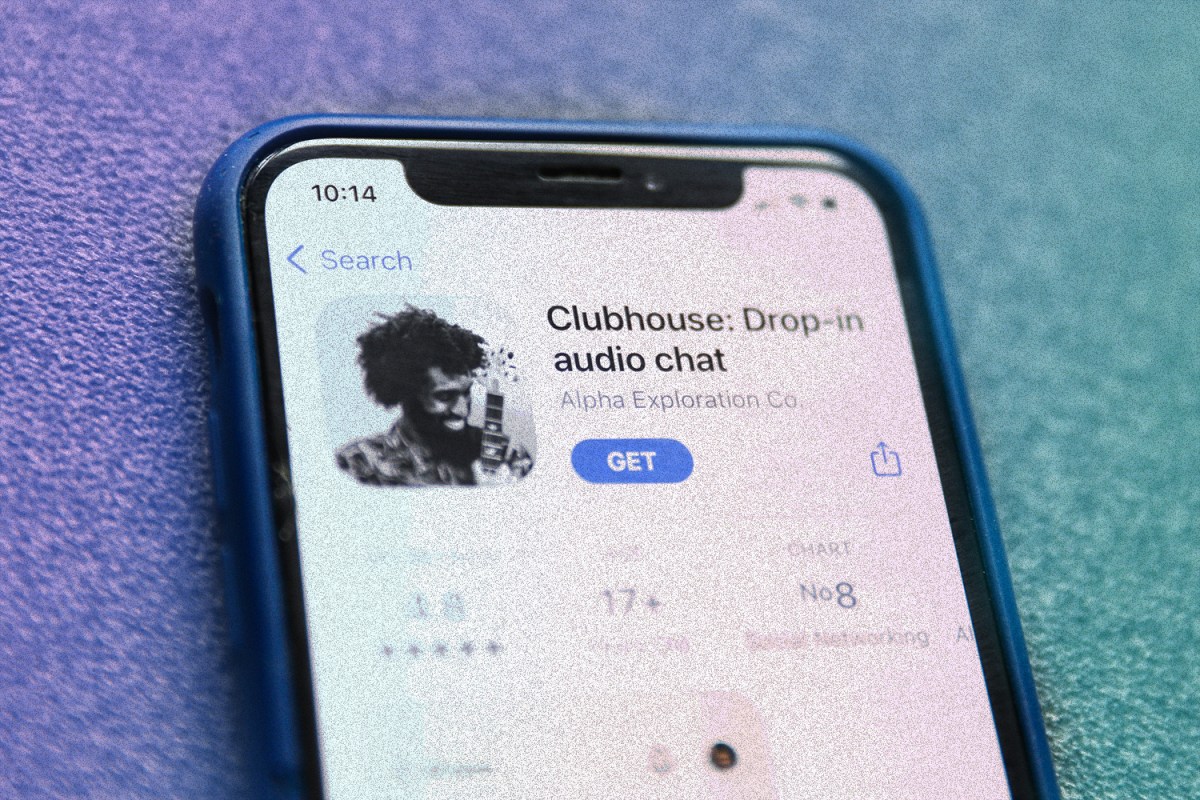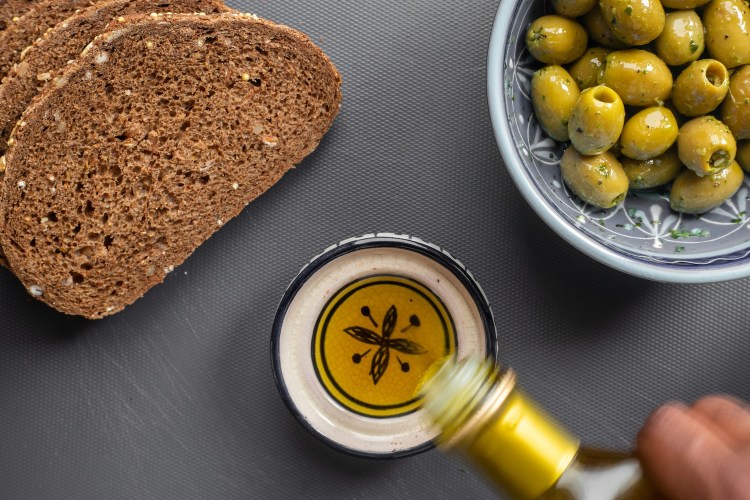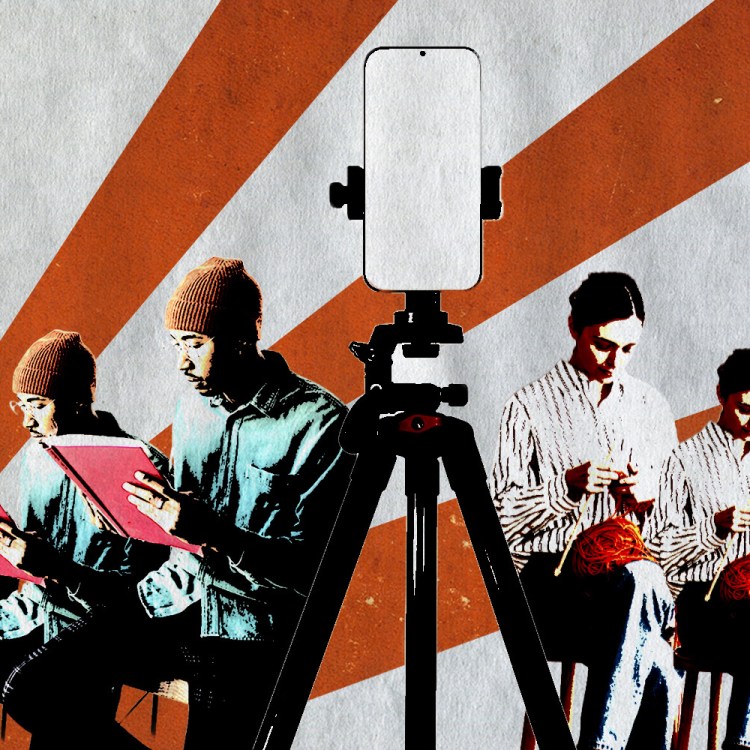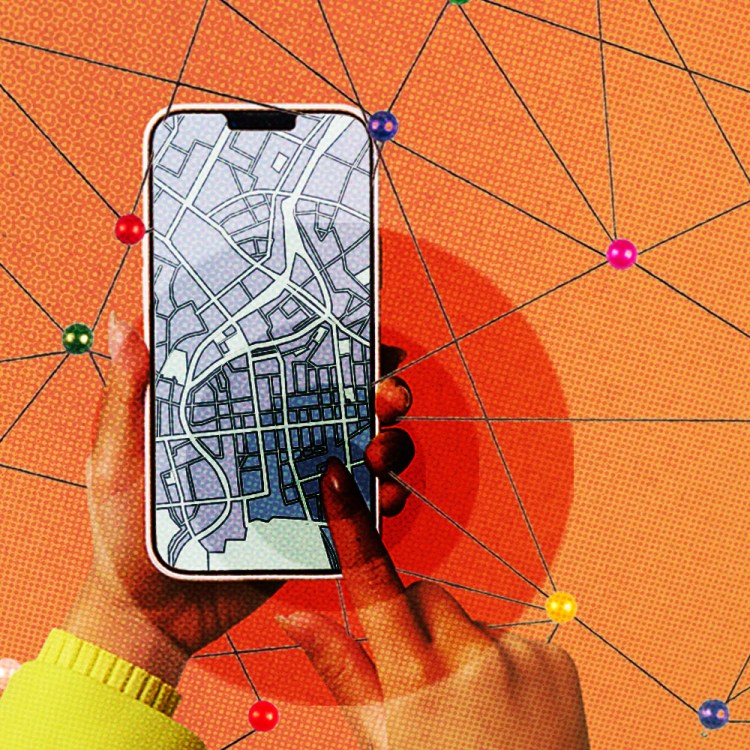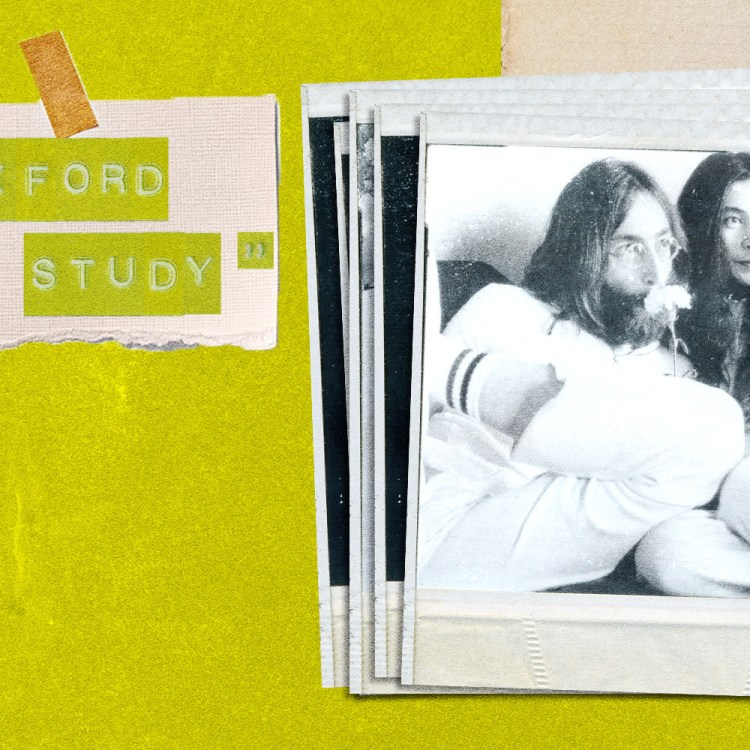Elon Musk is chatting with Kanye West on it. Vanilla Ice is doling out real estate advice. Van Jones, Mark Zuckerberg, Oprah, Mark Cuban and a throng of other celebrities, big-named venture capitalists and elite techies are all avid users of the exclusive, invite-only app Clubhouse.
It’s the newest social networking platform dominating the internet and you’ve probably heard friends, coworkers, Tesla CEOs or the New York Times talking about it. The audio-centric app has been a huge topic of conversation as of late, with Clubhouse users raving about the platform, which allows them to easily connect with and listen to “thought leaders” and even promote their own business ventures. Meanwhile, critics have called out the app for its privacy, misinformation and harassment problems.
The 11-month-old app is already valued at a billion dollars ,and its success isn’t going to let up anytime soon. So we will now answer all your questions about the growing platform and ultimately determine whether you need to give a shit about it.
What is Clubhouse and how does it work?
Clubhouse began as a small San Francisco startup founded by Silicon Valley entrepreneurs Paul Davison and Rohan Seth back in March, 2020. In May, the app had only 1,500 users, but was already worth a hundred million and quickly gained interest from high-profile celebs, entrepreneurs, Black creators and Silicon Valley. In a recent blog post, the Clubhouse’s creators explained the goal of the platform “was to build a social experience that felt more human—where instead of posting, you could gather with other people and talk.”
The social networking app is audio-based. Think conference calls, TED Talks, podcasts with no editing or structure — or as others have put it, imagine if LinkedIn could talk. The app is made up of virtual “rooms” you can browse and drop in on to listen to moderators talk about everything from marketing and business strategy to neuroscience, dating and sports betting. There are more lighthearted, fun chat rooms, too, focused on things like debates over the best cartoon burgers and, as Buzzfeed News notes, there’s even a room solely dedicated to users vocalizing their “best orgasmic moan.”
Rooms are made up of moderators, speakers and listeners. Listeners can alert the host (the person who created the room) or other moderators (people who have been appointed moderators by the host) via an icon that they wish to contribute to the discussion. Moderators can then accept or deny the request to speak; if accepted, the listener then becomes a speaker for the remainder of the session.
But what makes Clubhouse so appealing to many is that it’s invite-only. In order to join, an existing Clubhouse user must invite you. Once you secure that highly coveted invitation, you’ll be sent a link that brings you to the app’s sign-up page. The New York Times reported that you can purchase the much desired pass for $89 on eBay.
Additionally, Clubhouse is still in its “beta” phase, meaning that, despite its immense popularity and estimated two million users, the app is continuously being tested and is not yet available to most of the public. Android users, for example, are shit out of luck since the app is currently only available for iOS devices. However, Seth and Davison recently laid out their 2021 plan for the app, assuring users that an Android app is in progress. Still, that slight inconvenience hasn’t hindered some in the “Android Army” from jumping on board.
“This is a bit crazy, but I bought an iPhone for the sole purpose of checking this app out and I absolutely love it,” admitted JoMarie Burke, founder of Fourstreams Inc. Which brings us to our next question.
Why do people like it so much?
After posing this exact question to avid Clubhouse users, I received dozens of responses mostly all in agreement. For one, users found that the app is replacing in-person networking events, launch parties and seminars that have been canceled due to the COVID-19 pandemic.
“Clubhouse is filling a void created by the pandemic. Before, we had all manner of local events and meetups where information flowed between thought leaders in the tech industry,” says Katie Kent, Co-Founder of Placement. “With none of that happening, Clubhouse is the place to connect synchronously with people you do and don’t know, and listen to how they’re thinking about things right now.”
The app also lets users hear directly from people who are typically harder to reach. “It allows access to people that you can’t just find their numbers and call casually. For example, Elon Musk and Kanye,” adds Senior Strategic Communications Advisor Tiffany Woo, who moderates the Creative Asian Community room on the app.
Similar to podcasts, the audio-based nature of it allows you to engage in discourse without being stuck in front of a screen. Users can listen in while washing dishes or driving and still have the ability to engage in the discussion. “Clubhouse has become a first-of-its kind interactive podcast. Unlike a normal podcast where you basically have to keep your opinions to yourself and just listen, with Clubhouse I have an opportunity to jump in, shape the conversation and provide context to the speakers and other listeners,” explains Jonathan Lubic, President and Co-Founder of Distinction Agency. The ability to jump from room to room, exploring vastly different subjects at every turn with new people whose thoughts are often free-flowing and unpredictable is what makes the app exciting and addictive for avid users. “It’s like educational background noise for millennials,” notes Co-Founder and Director of Hike Agency Tom Leach.
Clubhouse has even been beneficial for those looking to grow their business. “Professionally, I am there to help market and spread brand awareness of our Venture Capital firm,” explains Marketing & Business Development Associate Mayra Del Bello. “I’ve joined Clubs that are related to startups, founders, investors, and I use it as a platform for networking.”
The platform makes it easy to build a following, expand your business and even find massive success, but some users are worried this could be Clubhouse’s eventual downfall. Unlike many other social apps, Clubhouse is largely bereft of trolls and bots, but Founder of Poolonomics Rick Patterson explains many people portray themselves as marketing geniuses who attempt to lure others into schemes. “This may or may not be a symbol for what Clubhouse will eventually become, but I hope not,” he says.
“I hope that it isn’t ruined by gurus and marketers, as every day I see more people offering to make people money,” adds Leach. “It needs to stay free, progressive and educational or Clubhouse will lose its shine.”
Ok, but what are the potential drawbacks?
Well, what’s a social media platform without widespread misinformation, harassment and privacy issues?
At sign-up, Clubhouse encourages you to give the app access to your contact list so you can easily connect with other users on the app. However, it seems Clubhouse is using contact data to build profiles for people who aren’t yet members, and European leaders have questioned whether this violates their countries’ privacy policies. China has already banned the app after Chinese users began having open political discussions on it.
Further, Clubhouse’s Community Guidelines state that users cannot transcribe, record or share information obtained in the app. For the sole purpose of investigating reported incidents, Clubhouse temporarily records audio when a room is live but deletes it shortly after. Still, this hasn’t deterred users from leaking audio onto Twitter and other social sites. “Yes, you should 100% assume your words will go public,” one Clubhouse user told NPR.
Like all major social networking sites, Clubhouse also has its own misinformation problem, allowing conspiracy theories about COVID-19 to go largely unchecked. Most notably, in January comedian Tiffany Haddish, podcast host/rapper Joe Budden and entrepreneur/wellness advocate Chakabars Clarke were accused of spreading misinformation about the virus, cyberbullying and allegedly doxxing a doctor on the app.
Incidents of harassment, anti-Semitic and LGBTQ+ hate speech, racism and sexism have been widely reported on the platform. Rooms bashing sex workers have cropped up, while journalists are being blocked from rooms that feature high-profile speakers. During Elon Musk’s talk on the app in January, Andreessen Horowitz co-founder Marc Andreessen prevented journalists from listening to the discussion.
Clubhouse’s main issue seems to be how its moderator function works. Whoever creates a Clubhouse room is the designated moderator and has the ability to appoint other moderators who then have the power to add or remove speakers. They inevitably become the ones in charge of resolving harassment and addressing misinformation. But this is an obvious issue, as Vox writes, “Self-appointed moderators are not always equipped to handle issues like harassment, hate speech, or misinformation, and Clubhouse has yet to implement guardrails to curtail such behavior.” Moreover, when your entire platform is essentially built for “thought leaders” and pseudo-intellectuals to share their unchecked, free-flowing thoughts and opinions to fans and unsuspecting listeners … you might come across a few problems.
Is this the future of media?
Facebook and Twitter are already developing their own audio-based Clubhouse competitors, with “Twitter Spaces” (Twitter’s voice-based version) currently in private beta testing. It seems audio communication might be the new wave, spurred on by the pandemic. Many fans of Clubhouse say audio communication is more intimate and stimulating, a nice break from the webcams we’ve been overusing since last year.
“The pandemic has brought us back to the basics. As users race to Clubhouse, I expect to see similar social platforms emerge while Big Tech rolls out its own audio products to meet the demand,” argues Abhi Mathur, founder of Acoustic Meta Materials (AMM). “Audio allows us to break outside the physical barriers of video squares and brings humanity back to communications, which we have been craving during the pandemic.”
Still, some critics are not as impressed. Writer Ryan Broderick tweeted this week that Clubhouse causing an onslaught of “endless think pieces the future of media” despite essentially being a worse version of Discord, “says a lot about why the internet sucks so much right now.” Discord is a popular online messaging service used primarily by gamers and live streamers to communicate with their followers. Users can communicate through voice messaging as well as video, text and media, and the platform has been praised for its administrator and moderator functions which give communities on the app the tools to accurately police themselves.
Will my life still have meaning if I don’t secure an invite right this second?
For me, personally, the idea of LinkedIn being able to talk sounds insufferable. But I do understand the appeal for businesses and creators looking for new ways to grow their following.
Perhaps Clubhouse will take advantage of its beta stage and employ some Discord-level moderation and work out its misinformation and harassment kinks. According to a statement released on October 1st, it looks like they are, in fact, working to improve their community moderation. Will it be free of all issues? No, no social media platform is.
The biggest hurdle, really, is shaping up to be how elite Clubhouse users attempt to shelter themselves from negative feedback. We’ve already seen how Silicon Valley and VCs deal with criticism, particularly from journalists, often crying “cancel culture” and harassing those who dare to speak up against them. It’s likely we’ll continue to see high-profile moderators utilize the app’s block function on anyone attempting to raise concerns about abuse happening in their supposedly free-thinking spaces. But like any social media platform — and life in general! — the quality of the experience will vary greatly based on the company you keep when you’re in it.
This article appeared in an InsideHook newsletter. Sign up for free to get more on travel, wellness, style, drinking, and culture.
